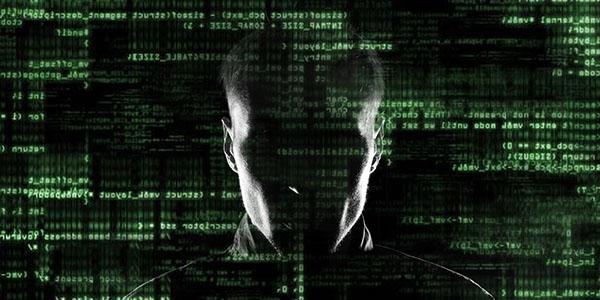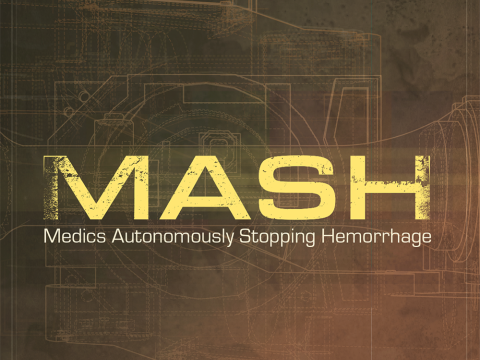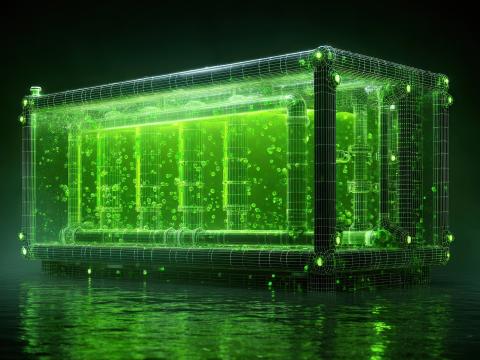Technologies, Virus Wreak Changes on Intelligence Analysis
Among the many institutions that have been permanently changed by the coronavirus, the intelligence community has the most important standing in the national security realm. And, the changes wrought by COVID-19 are complemented by new technological capabilities that are altering the analysis picture across the board.
How these changes are working in concert to change the intelligence community was the discussion point for a panel of experts in a recent AFCEA Intelligence webinar. Titled “Intelligence Analysis Tradecraft in an Open and Rapid World,” the presentation addressed how open-source data has generated new requirements for analysis and understanding. Along with that are the methodologies introduced or emphasized by the need to produce finished intelligence amid the limitations imposed by the global pandemic.
Katherine Pherson, former CIA analyst and CEO, Pherson Associates LLC, noted that technology has changed the nature of intelligence by creating a mountain of open-source information, especially through news and social media. Browser power has created instantly searchable means for individuals to collect information on their own. The dark web has created its own tradecraft for finding useful information anonymously. And, all these efforts must filter out disinformation.
But the underlying principles have stayed the same. “The new world places more of a responsibility on analysts to actually know the differences in the sensitivity of their sources,” she stated.
“It provides the possibility to frame our issues but challenges how we assess the validity and the reliability to trust the sources and the information,” she added.
Tradecraft changes apply across the spectrum of the intelligence community. “When I first came into the intelligence community in the 1970s, collectors and analysts belonged to different tribes,” related Barry A. Zulauf, chief of analytic integration, Office of the Director of National Intelligence (ODNI). “We now need to move beyond those tribal boundaries.” Zulauf emphasized that his remarks throughout the webinar were his opinion alone and did not represent any official views of the government or its agencies.
He continued that analysts need to help collectors understand the priorities for gathering intelligence, and collectors need to help analysts be more aware of what is available. Overall, this implies a change in psychology. No longer are analysts trying to make sense out of a few pieces in a jigsaw puzzle. Instead, they have all the pieces in hand, including all the pieces from throughout history. The new approach will require extracting a meaningful picture from a vast collection of pieces, he offered.
Zulauf added that humans cannot possibly process all the information that is available. Artificial intelligence solutions help think through the data and display for analysts what they need to focus on, so humans can do what they do best—provide insight.
The COVID-19 pandemic has changed the way intelligence operates. Zulauf noted that the community has been forced to work on collaboration platforms outside of secure spaces and closed networks, addressing concepts that had been theorized but never acted upon over the years.
Pherson agreed about that pandemic effect on open-source availability in the intelligence community, but she also pointed out that it has had its own influence on the definition of national security. It is more than just interstate relations. It’s inextricably tied to drivers in the natural world such as disease, natural disasters, climate change, resources, food and water, she stated.
The commercial sector has its own intelligence requirements that encompass many of these issues, but there’s a different approach in commercial intelligence pursuit, pointed out Bob Gourley, founder and partner, OODA LLC. Where the national intelligence community focuses on understanding hostile adversaries and foreign powers and their related issues, the needs of corporate America are much broader. The commercial sector has a different customer set with different analytic tradecraft required, he observed. “I’d like to see more training of the analytical tradecraft from the intelligence community into corporate America, but I’d like to see it in a way that scales.” This effort should begin in the earliest levels of schools with education in critical thinking across all of the nation, he added.
Then there is the flow of analytic techniques from the corporate sector into the intelligence community. Gourley lauded intelligence officials who have asked the commercial sector how it does analysis, as lessons learned there could be applied in this new intelligence era.
Zulauf called for a multi-INT type of intelligence collection education that helps analysts and collectors determine how to leverage the appropriate collection to generate a correct answer. There are many types of training, but they tend to be INT-specific. The new training should be conducted in partnership with industry, as Gourley suggested, because it has the necessary expertise in scaled training.





Comment
Great article, thank you. I
Great article, thank you. I would replace "wreak changes" with "open opportunities" in the title. Your article alluded to this in the paragraph citing Barry Zulauf's reference to collaboration platforms. One additional opportunity I see is rethinking how we grow our future intelligence analysis force. Rather than hiring someone from college and placing them in 'holding' until their clearance is adjudicated, we should more seriously consider an idea that has been discussed before: remote internships. While our focus is on creatively solving the problem of our current workforce being distributed, we can extend those solutions to opening up more possibilities for our future workforce.
I’ve been retired from the IC
I’ve been retired from the IC a little while, so maybe things have changed, but, some observations:
- Don’t remember the IC having the “most” important standing in the nat’l security realm. Surely, the NCA, NCS, JCS, State, Energy, Treasury, etc, and operators (civ and mil alike) have a more important standing. From what I learned in schools and saw from experience, what they do with intel is more important. An example is Patton’s race across Europe based on intel about German fuel status.
- Instead of open-source generating “new requirements”, the effect and needs of open-source info does not seem to have changed since the 1990s, at least from my experience building defense and national intelligence capability requirements and programs and as noted in “Part VI-The Open Source Revolution” in Intelligence and the National Security Strategist, edited by George and Kline, 2006 and the WMD Commission report (2005).
- Having mountains of open-source info, including info from the dark web, surely hasn’t changed the “nature” of intel. Regardless the size of the mountain or hill, isn’t intel still intel - the product resulting from the collection, processing, evaluation, interpretation, and reporting of info? (Note: Acknowledge intel is also a profession, program, etc.)
- I don’t see how the “new” world places any “more” responsibility on analysts to know and trust their sources than analysts had at any time in the past. Throughout history, analysts have had to become comfortable with new info (e.g., MASINT). Further, I suspect what is new today is only a variant of what was new ten and 20 years ago. Regardless, the level of responsibility should be the same now as it was then.
- Rather, leaders in the analytic community still do not understand the analyst-collector relationship. Fortunately, the kids on the frontlines do, and do it exceptionally well every day, even though they have not gone through some sort of psychological transformation that I could see.
- I bet analysts would be surprised to know they have all the pieces of their jigsaw puzzles.
- I doubt COVID-19 has really changed the way intel operates. I bet much of it operates like it did pre-pandemic. But, I suspect, some locations of where some staff and others work and means of internal comms has changed. I wonder if those working at home for the past seven months still like their work environment.
- Issues like those mentioned by Pherson (e.g., disease) have always been part of the national security portfolio, at least from what I learned in courses and read in various national/departmental/ discipline-level strategic plans since the 1970s.
- As for multi-Int intel collection education-hope NIU already has it as part of its degree, certificate, and stand-alone programs (would have made the same comment ten years ago and would have been disappointed).
Maybe the President was correct when he opined some in the IC need to go back to school.
Comments